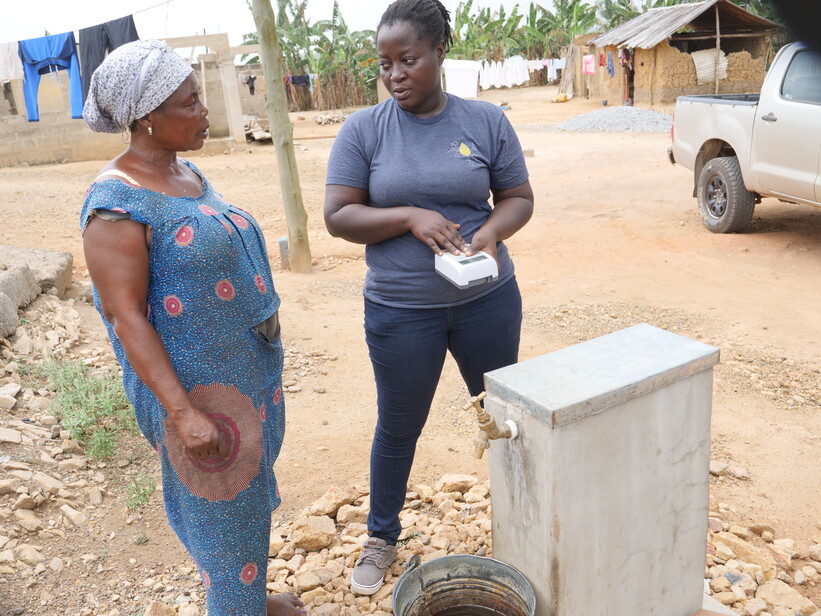
This report on the Rural Water 'Utilitisation' project in Ghana gives a comprehensive overview on water infrastructure, services and stakeholders in the Western Region.
Published on: 11/12/2023
The 2030 agenda promises access to safe and sustainable water, sanitation, and hygiene services for all. According to the Joint Monitoring Programme (JMP) 2022, Ghana stands at 63% household access to safely managed services in urban areas. In comparison, rural areas stand at 19% for safely managed and 55% for basic drinking water services. While progress since 2015 is evident, there’s still a long way to go to fulfil the promise of Sustainable Development Goal 6.
Since 1998, Community Water and Sanitation Agency (CWSA) has overseen WASH infrastructure development in rural areas, supporting community service providers through the community ownership and management (COM) model. Over 20 years, water coverage surged from 27% (1990) to 62% (2020), yet sustainability issues persist, with many systems facing dysfunction due to inadequate management, leading to breakdowns, water quality issues, high Non-Revenue Water (NRW), energy costs, financial struggles, and accountability problems.
Utilities are increasingly stepping into filling similar gaps across the globe by providing water services in rural areas. In Ghana, the transition of the CWSA from a facilitator and regulator of rural water supply into the national utility for rural service provision has been ongoing since 2017. The idea is that CWSA will improve operational efficiency and ensure sustainable water service delivery through piped water systems in rural communities and small towns.
The Rural Water ‘Utilitisation’ project, funded by the Conrad N. Hilton Foundation aims to support CWSA to transition into an efficient utility, prioritising equity, expanding services to households and institutions, and improving monitoring, evaluation and reporting as part of the reform process in the rural water sub-sector of Ghana. The project partners are IRC, Water and Sanitation for the Urban Poor (WSUP), Safe Water Network (SWN) and CWSA.
This collaboration leverages insights from local and African partners on strengthening utilities, managing safe water enterprises, and advocating for sector reforms.
IRC’s role in this project is in enhancing sector learning and systems strengthening. This includes a focus on data management of water systems, fostering partnerships, and improving coordination mechanisms for learning and development.
A key step for providing the necessary evidence for sector engagement was to map water services in the Western Region of Ghana to gather information on the facilities (functionality, reliability, distance, delivery models in place, operations, and management) and performance of the service providers and authorities.
This report presents the findings of a mapping conducted by the Ghana Statistical Service. It gives a comprehensive overview on water infrastructure, services and stakeholders in the Western Region and aims to support sector strengthening and learning, a key element of supporting CWSA’s change journey. Better communications around the progress of CWSA’s development into a utility is expected to support increased collaboration and understanding amongst WASH stakeholders in Ghana. These insights are therefore crucial for building and strengthening systems that ensure a financially sustainable and effective rural water service model.